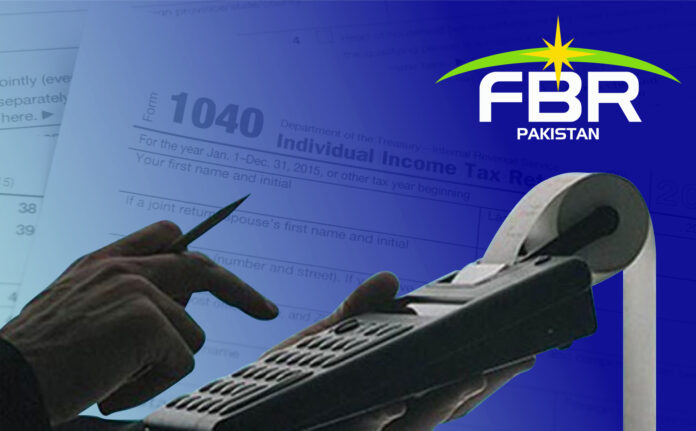A recently introduced provision under the Finance Act 2025—Section 21(s) of the Income Tax Ordinance, 2001—is facing serious headwinds just eleven days after coming into effect. While intended to promote documentation and discourage large cash-based transactions, the absence of operational guidelines from the Federal Board of Revenue (FBR) has raised alarm among tax practitioners, businesses, and policy experts.
Section 21(s), added to the tax ordinance with effect from July 1, 2025, aims to disallow 50 percent of claimed expenditures related to sales where payments exceeding Rs200,000 are received in cash or via non-banking channels under a single invoice. The policy objective, according to government officials, is to incentivize traceable transactions and expand the tax base by limiting deductions on cash-heavy dealings.
However, tax experts argue that the provision is marred by ambiguity and practical challenges, which threaten to render it ineffective—and potentially even counterproductive.
“The biggest flaw in the provision is that it lacks an implementation framework,” said one tax consultant. “There is no formula or method laid out to attribute specific expenses to sales that exceed the Rs200,000 cash threshold. Without this, enforcement becomes speculative and opens the door to manipulation.”
Under the rule, a transaction below the Rs200,000 limit in a single invoice faces no disallowance. For instance, if a business sells goods worth Rs199,999 and receives cash, it can claim the full amount of any associated expenses—such as freight or commission payments—as deductible. But if a similar sale is made for Rs200,001, and paid in cash, 50% of the related expense becomes non-deductible.
The lack of attribution guidance allows businesses to argue that minimal expenditure is linked to such sales, potentially circumventing the rule’s impact. “This makes the provision easy to sidestep and opens it up to litigation and disputes,” said another Karachi-based tax advisor.
The new rule may end up penalising formal businesses more than informal ones. Experts pointed out that entities already within the tax net—especially small and medium enterprises (SMEs) with limited banking infrastructure—are likely to face compliance burdens, while the cash-heavy undocumented sector remains unaffected.
“This measure does not apply to those outside the tax ambit who operate fully in cash and don’t interact with the banking system at all,” said Rehan Jafferi, former president of the Karachi Tax Bar Association. “You are essentially punishing the compliant for the sins of the non-compliant.”
Jafferi criticised the FBR for what he called a “punitive mindset,” warning that such provisions could fuel taxpayer resentment. “It’s a form of undue harassment,” he said. “You are disallowing expenditure, but you haven’t improved the system’s capacity to verify or audit transactions fairly. This could drive more businesses away from formal channels.”
Another concern lies in the enforcement architecture for different types of taxpayers. Individuals and associations of persons (AOPs) with turnover under Rs300 million are not legally required to conduct professional audits. This creates a verification gap: without audited accounts, it becomes nearly impossible to determine how much expense is attributable to specific invoices, let alone how much should be disallowed.
“This discrepancy between tax policy and audit coverage undermines the effectiveness of the provision,” a tax advisor noted. “It’s difficult to impose rules that hinge on expense verification when there’s no mandatory auditing mechanism in place for large sections of the taxpayer base.”
Perhaps the most worrying implication is the risk that Section 21(s) could disincentivize documentation altogether. Experts fear that instead of pushing businesses toward formal payment channels, the new rule may encourage them to avoid traceable invoicing to escape the Rs200,000 threshold altogether.
“If you’re going to disallow expenditure on cash-based transactions above a certain value, many businesses may just split invoices or underreport transactions to avoid the threshold,” warned a former FBR official. “This goes against the very spirit of the documentation drive.”
Instead of bringing more of the economy under the tax net, the provision might unintentionally nudge businesses toward keeping a greater share of their activity off the books. In a low-trust environment where tax enforcement is seen as arbitrary or opaque, such risks are heightened.
Experts agree that the principle behind Section 21(s)—curbing large, untraceable cash transactions—is sound. But they stress that it needed to be part of a broader framework of reforms, including better transaction tracking systems, point-of-sale integration, and real-time invoice monitoring through technologies like e-invoicing and digital receipts.
“Rather than jumping to disallowances, the FBR should first have introduced a pilot phase or at least developed clear SOPs for implementation,” said a tax policy consultant. “The goal should be behavioral change, not compliance shock.”
They also recommend expanding the scope of documentation incentives—such as lower tax rates for documented businesses or accelerated refunds—and investing in the FBR’s digital infrastructure to reduce the reliance on blunt instruments like Section 21(s).




